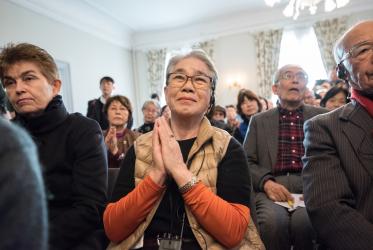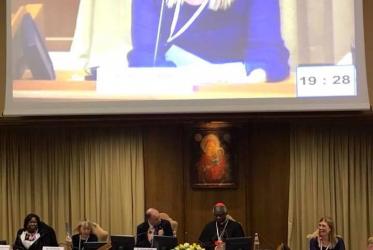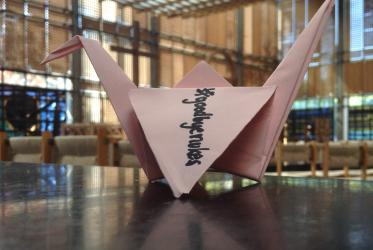Displaying 101 - 120 of 333
Nobel winners plan next steps for banning nuclear weapons
10 December 2017
During Advent, WCC invites the world to “A Light of Peace”
14 November 2017
Pope Francis strengthens condemnation of nuclear weapons
14 November 2017
WCC congratulates Nobel Peace Prize laureate ICAN
06 October 2017
WCC expresses support for Swedish ban on nuclear weapons
19 September 2017
Calls grow for nuclear weapons ban
13 October 2016










